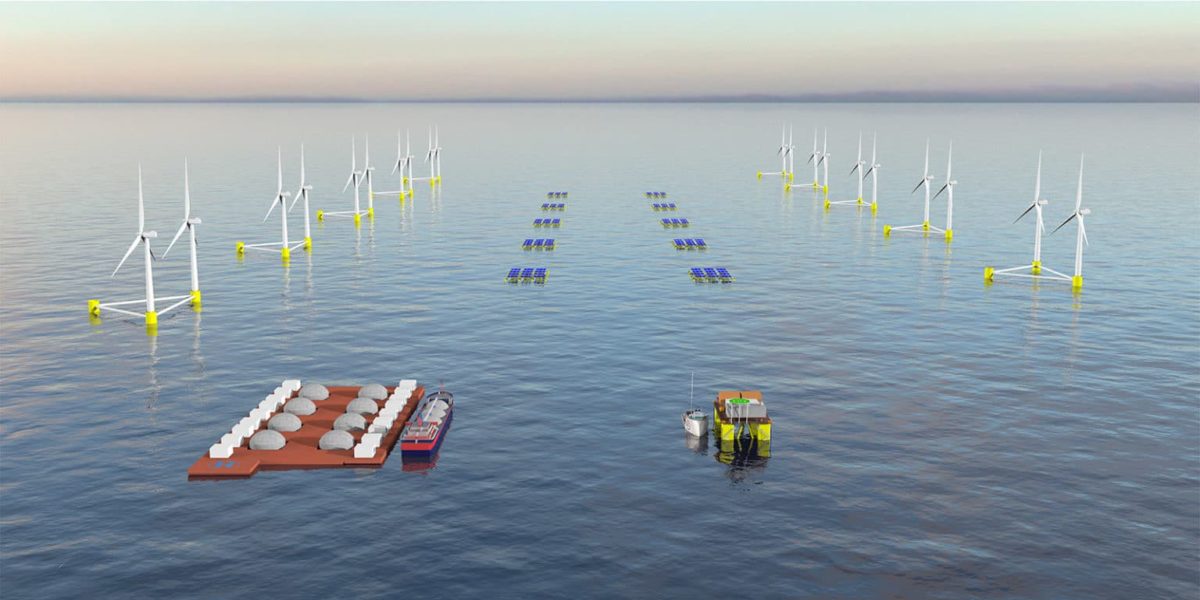From pv magazine Spain
Repsol Technology Lab, a unit of Spanish oil producer Repsol, is participating in a pioneering project to produce green hydrogen from floating PV in Cantabria, northern Spain. The Cantabria Sea of Innovation Cantabria Cluster (SICC) is leading the Bahía H2 Offshore project.
It has a budget of €4.5 million and will be completed in December 2023. The project will occupy a water surface owned by the Santander Port Authority (APS) and the developers will focus on the design and construction of a prototype plant for offshore hydrogen and green ammonia production, powered by floating solar arrays.
The green fuel will be used for vessels and equipment in the Port of Santander. In this phase, the technological solutions will be tested in the port area, but they will eventually be applied in locations far from the coast.
The SICC is also supporting the OceanH2 industrial research project led by Acciona, whose objective is to design and validate the first offshore green hydrogen generation, storage and distribution project in Spain. The project will combine wind and floating PV technology and will be based on different implementation scenarios for offshore hybrid electricity generation systems, in order to identify those with the greatest development potential.
After the study has been completed, Acciona will conceptually validate the solution on a laboratory scale and integrate it into an Internet of Things platform that, based on intelligent monitoring, will facilitate the operation, maintenance and management of the plant. The project will be developed simultaneously in six autonomous communities of Spain, including Madrid, the Canary Islands, Andalusia, Cantabria, Navarra and Catalonia.
Natural gas distributor Redexis will lead an investigation into the technologies and will supply renewable hydrogen from the sea. It will handle the design of the hydrogen transport systems by pipeline, as well as the loading, transport, and discharge systems of hydrogen via ships. It will also oversee temporary storage at the port, land supplies of hydrogen, and supplies of hydrogen to ships.
In addition, it will conduct a comparative analysis of the technologies, with a focus on conceptual design, scale, technological maturity, integration conditions, and estimated costs. It will also identify the requirements in terms of energy regulations and industrial-marine safety guidelines, in order to establish an offshore green hydrogen production, storage and logistics chain.
This content is protected by copyright and may not be reused. If you want to cooperate with us and would like to reuse some of our content, please contact: editors@pv-magazine.com.



1 comment
By submitting this form you agree to pv magazine using your data for the purposes of publishing your comment.
Your personal data will only be disclosed or otherwise transmitted to third parties for the purposes of spam filtering or if this is necessary for technical maintenance of the website. Any other transfer to third parties will not take place unless this is justified on the basis of applicable data protection regulations or if pv magazine is legally obliged to do so.
You may revoke this consent at any time with effect for the future, in which case your personal data will be deleted immediately. Otherwise, your data will be deleted if pv magazine has processed your request or the purpose of data storage is fulfilled.
Further information on data privacy can be found in our Data Protection Policy.